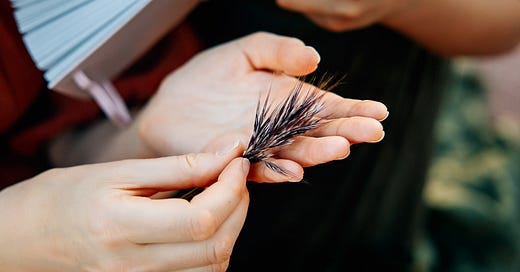Science Without Experiments Isn't Science
How This Former NIH Researcher Teaches Her Kids Science
Before I was a homeschool mom, I was a tenured University Professor in Biomedical Engineering.
I ran clinical trials and reviewed for NIH, taught undergraduate and graduate level science courses, and published numerous articles in journals like Journal of Neurophysiology and Speech and Language Pathology.
I know science.
So, you should take me seriously when I say👇
Learning science without experiments is like learning the alphabet without learning to read… you have the foundation but don’t know how to USE it.
I get it. Science is messy. It takes a bunch of time. It’s one of the most expensive subjects to teach with all the stuff to buy.
But it’s also one of the MOST important.
Many parents are convinced that studying scientific facts is learning science, but they are mistaken.
Scientific facts are critical (please learn these!), but they are more like the history of science. It’s the study of what we already know. It’s super important and you can’t do proper experiments without this foundational knowledge, but it isn’t, technically speaking, science.
Science is the active process of learning something new through the scientific process.
Now a bunch of you just said “My 3rd grader isn’t discovering new ideas in my living room,” and you’re right. They aren’t. But they are learning the PROCESS by which new ideas are created.
When we teach children to write, we teach them the process first. In fact, one of the best ways to teach kids to write is by imitating great writers.
First, you imitate, then you emulate (make better or in the case of science make new discoveries).
Science experiments aren’t negotiable; they are required learning!
That said, many parents feel completely overwhelmed when trying to do hands-on experiments. So, what are some tips to get started? How can you make this doable?
In today’s post you will learn…
BEST Practices for Teaching Science: We’ll talk about how to balance knowledge & experiments, differences between younger & older kids.
How to Make Experiments Work for YOU: My favorite alternatives to YOU doing experiments.
Resource Recommendation: I also give you my favorite science program that I adapt for my club of 6-10 year olds. Spoiler: I teach 1st graders middle school science!
This is a paid member exclusive, upgrade below for full access. Why is this behind a paywall? ClarifiEd is 100% supported by you… not ads, not grants… just you.




